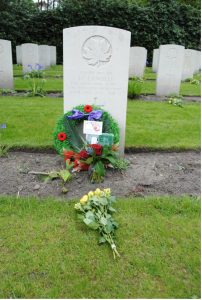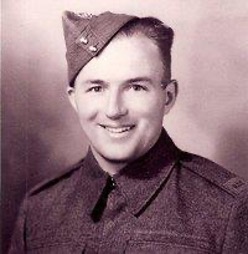Remembrance Day 2022
This post was originally published on November 10, 2021… I carry the sentiments with me every day.
“They sacrificed their tomorrows, for our todays.” Oh, so many “Theys”…
I don’t remember ever not attending or observing a November 11th ceremony. When I was younger, we went to the Alberni District Senior Secondary auditorium as a family, watching veterans, service members, and cadets lay wreaths for the fallen. As I got older, it was a local cenotaph or sometimes simply watching the service broadcast on TV if I was unable to attend in person.
No matter where I was, it was important to observe a moment of silence at the 11th hour of the 11th day of the 11th month – and to support veterans by buying a poppy and wearing it respectfully. In fact, usually buying many as they invariably slipped off so often during “poppy season”. Folks often express frustration at how easily the poppies get lost, lamenting the straight pins that need securing to stay in place. Personally, I think it’s quite brilliant and means more money raised in support of Canada’s veterans, as we keep donating to keep sporting a bright red poppy on our lapels. Supporting veterans who made it home is a significant cause. Not all soldiers make it back. Those who do deserve our respect and support. They may come home, but they’re often not quite the same as when they left. They deserve our help in their personal healing process.
November 11th services were so important in my family not only because my dad served ten years in the Air Force, but also because my paternal grandfather, Private Ira Charles Langille, died in World War II on April 28, 1945 – achingly close to the end of the war.
We didn’t grow up hearing the tragic circumstances that took my grandfather’s life. However, being my mother’s daughter and sharing an interest in genealogy, I learned the story of his service and his death several years ago from a few sources. Some details were garnered from answers to our questions from our grandmother, documents from her collection and, later, information gathered from Edwin at the Holten Canadian War Cemetery, where Ira is interned.
Quite a few years ago, my grandmother shared with my mom a collection of wartime letters from Ira, in addition to military enlistment documents, death certificate and details, and even a message of condolences from the King of England on the official Buckingham Palace seal and letterhead, all related to my grandfather. My mom copied them all, put them in a binder, and my grandmother gave them to me as a Christmas gift many years ago. Each letter is signed off with, “Your loving husband Ira XOXO Kiddies XOXOXOXO”- hugs and kisses for his wife and his children, my dad, and aunts. Although I never met him, I feel a connection to Grandpa through his letters. He sounds like a kind and caring man who missed his family. Sadly, in one of his last letters, he expressed a concern that he was “born under an unlucky star.” It felt sadly prophetic. I read the letters each Remembrance Day and imagine what life would have been like for our family had he returned home after the war…
Ira was born May 7th, 1912, was an only child who lost his mother, Elsie, when he was 8 (there’s a tragic story there as well but that’s for another time) and was brought up by his maternal grandparents. This story starts in 1941, when my grandfather went to an evening church revival in Milton, Nova Scotia with some buddies. He was married to Viola (Vi) and had three young children with another on the way. When he came home from the church’s event, he told Vi he had signed up for the war effort. On July 8, 1941, at the rather advanced age of 29, Ira signed his enlistment papers, committing to join the fight in WWII.
I asked my grandmother what she thought when her non-soldier husband, the father of her children, came home to announce he’d be heading to basic training and overseas to fight. She admitted she wasn’t at all happy about the announcement but said, “we did what we needed to do.”
Fast forward to May 14, 1945, when Vi received the first telegram advising her husband was missing in action. On June 2, 1945, she received another stating, “…the report of Private Langille being wounded and remaining on duty is a newspaper error…”. Finally, on September 12, 1945, she received a telegram with the following, “Regret deeply Private Ira Charles Langille previously reported missing now officially reported killed in action twenty-eighth April 1945.”. How heartbreaking for my young grandmother, now a widow and single mother of four young children.
In the eyewitness document accounts of two soldiers, they each state, “At approximately 1515 hours on April 28, 1945, the u/m (uniform member?) personnel were in an assault boat with me crossing the EMS River in the assault on LEER. Enemy fire sunk the craft and the u/m were thrown into the river. No further word has been received and I have never seen any of the men since. I firmly believe all were drowned.” Interestingly, each statement was identical, except for a couple of spelling errors.
After getting to know Edwin, volunteer and historian extraordinaire at the Holten Canadian War Cemetery and their documented details of the events surrounding the battle on the Ems River, we were told “the assault boats came under heavy machine-gun fire from the Germans.” We now can’t be sure how Ira died, either by drowning, machine gun bullets, or a combination of both.
Losing the husband, father, grandfather, and great-grandfather had a devastating effect on our family. I, and the rest of our family, experienced first-hand, through the eventual sharing of stories of family skeletons, the challenges and damage that resulted from Ira not coming home from WWII. Each family member has been affected in one way, shape, or form by his loss and the events that came after. The generational trauma and healing continue to this day. The underlying reason is yet another family tragedy that is too much to get into here. Suffice to say, our story of loss is likely not a unique one when it comes to the struggles and dangers that face those, particularly women, who lose their partner during wartime.
There have been gifts that have come from the experiences of our family. As well as some deep appreciation for the work I did with the uniform sectors at Royal Roads University (RRU)…
- Getting to work with the military was meaningful on several levels. I was able to develop a deep understanding that complimented my own experience, leading to the ability to positively impact uniform members by shedding on light on their strengths, aptitude, and abilities in their professional and personal lives.
- I had the opportunity to connect my grandmother to a professor and colleague at RRU, whose research revolved around wartime volunteerism, and we captured her recollections of that time on video. I learned much during that conversation and developed a deep appreciation of what her generation achieved.
- Through the story of my grandfather, I had the great honour of meeting Mike Muntain from Kingston, ON, who created A Face for Every Name initiative. There are 1355 Canadian soldiers (with a handful of other Allied Forces members) buried in the Holten Canadian War Cemetery. Mike came to learn that only a few hundred of those soldiers had their photo and story to go with the headstone. He vowed to change that, launching an awareness campaign that included connecting with families of those buried. I was one of the lucky few members to meet Mike before his untimely passing due to Cancer. His legacy is significant as he was virtually solely responsible to helping the cemetery obtain stories for almost all the deceased.
- While working at RRU I was honoured to liaise with the Vancouver Island Ex Cadet Club (VIECC) for many years in the organization of the annual Remembrance Day Service that took place in the Italian Garden, where the Royal Roads Military College (RRMC) cenotaph figures prominently. The connection to the VIECC and their beautiful November 11th service was especially impactful for me. Laying a wreath there in honour of my grandfather was a profound experience.
 My aunt, a few of my cousins and I brought Vi’s ashes, after her passing at 98 years, to Ira’s gravesite in Holten, Netherlands, to join him in eternity. We timed our pilgrimage with their May Remembrance Day and the anniversary of the Liberation of the Netherlands. We toured the museum, where stories of the war and the soldiers buried at the Holten Canadian War Cemetery are shared. We also got to see the appreciation for the Canadians who sacrificed their lives to save the Dutch people and country, through their eyes, tears, and stories. The Dutch will never forget and set a great example of how to properly educate younger generations of the perils of not learning from history.
My aunt, a few of my cousins and I brought Vi’s ashes, after her passing at 98 years, to Ira’s gravesite in Holten, Netherlands, to join him in eternity. We timed our pilgrimage with their May Remembrance Day and the anniversary of the Liberation of the Netherlands. We toured the museum, where stories of the war and the soldiers buried at the Holten Canadian War Cemetery are shared. We also got to see the appreciation for the Canadians who sacrificed their lives to save the Dutch people and country, through their eyes, tears, and stories. The Dutch will never forget and set a great example of how to properly educate younger generations of the perils of not learning from history.
With all our family history, it’s not surprising that Remembrance Day is meaningful to me and our clan. Having lost my grandfather and seeing what can happen when a family loses their patriarch in wartime, it’s also not surprising that I’ve attended my share of peace marches and protests against questionable war efforts. It may appear to some like a contradiction; however, I understand the rare need for war but always hope for an alternative approach that won’t result in the death of so many and doesn’t leave families vulnerable to the horrors that come not only during war, but after as well.
In the meantime, with the hope of a peaceful future, I thank every veteran and service member for their sacrifices. I have a deep appreciation for the families who selflessly share their partners, fathers, mothers, brothers, sisters, aunts, and uncles, in service to Canada. On this Remembrance Day 2021, I’m grateful to live where we live with the freedoms we enjoy.
I honour all those who came before and after my grandfather, Ira Charles Langille.
Lest We Forget.

